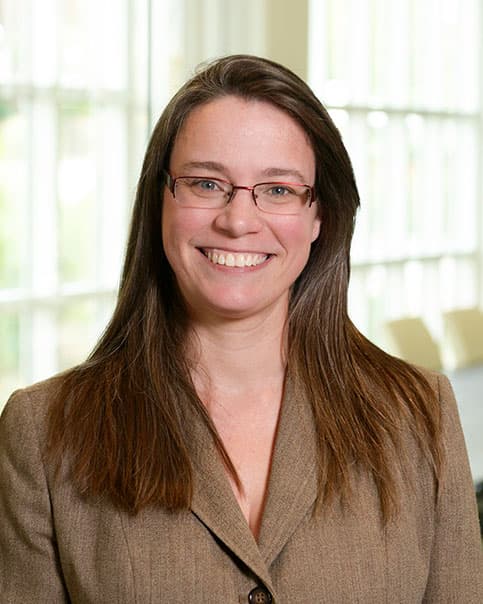Grants
Peterson, D.C. Limbic Circuits and Gut-Brain Interactions. PCOM Research Grant, $8750,
7/1/2020-6/31/2021.
Peterson, D.C., Hamel R. Integration of Basic Science with Clinical Curriculums: Student
Growth in Clinical Reasoning and Communication through Practice. HPU Growth Mindset
Pedagogy Grant, $1,500, 7/01/18-6/31/19
Peterson, D.C. Examination of short-term learning outcome measures: cadaveric versus
two-dimensional learning tools. ISU SoTL, $1,850, 07/01/15-06/31/16.
Peterson, D.C. “Amygdalar modulation of processing in auditory cortex.” National Institutes
of Health, Small Grant Program (NIH R03: DC010245) $444,000. 03/01/2010-02/29/2015.
(Primary Investigator).
Peterson, D.C. “Distinguished Traveling Scholar Award 2014”, Society for Neuroscience,
$1,200. (PI, President, Ames, IA Chapter of the Society for Neuroscience).
Peterson, D.C. “Society for Neuroscience Chapter Grant 2014” Society for Neuroscience,
$1,415, 01/15/14-01/14/15 (Principle Investigator).
Peterson, D.C. “GABAergic Neurons are Preferentially Damaged During Blast-Pressure
Wave Induced Traumatic Brain Injury.” ISU CVM Seed Grant, $19,000. 07/01/13-06/30/14
(Principle Investigator).
Peterson, D.C. “Distinguished Traveling Scholar Award 2013”, Society for Neuroscience,
$1,100. 6/28/13-6/27/14, (PI, President, Ames, IA Chapter of the Society for Neuroscience).
Peterson, D.C., Ellinwood, M., Sakaguchi, D., Trimarchi, J., West, R. “Neuroscience
Day Application 2013”, ISU Biotechnology Symposium Grant, $4,000. 7/1/13-6/30/14.
(Principle Investigator).
Peterson, D.C., Winer, E., Gilbert, S. “Virtual Surgery: New Frontiers in Medical
Education” ISU Miller Fellowship, $15,000. 07/01/13-06/30/14. (Principle Investigator).
Peterson, D.C., Winer, E., Gilbert, S. “Interactive Virtual Surgery: New Ways to Learn
Medicine” ISU CAC grant, $67,239. 06/01/13-05/31/14. (Principle Investigator).
Peterson, D.C.”Iowa State University: Peterson Foreign Travel Grant 2013” ISU, $750,
04/01/13-04/11/13 (Principle Investigator).
Peterson, D.C. “SFN Chapter Grant 2012” Society for Neuroscience. $800. 10/24/12-10/23/13.
(Primary Investigator).
Peterson, D.C. “3D Volume Rendering of Veterinary Anatomy” Iowa State University CLIM
grant, $12,400. 05/01/12-04/30/13. (Primary Investigator).
Peterson, D.C. “Distinguished Traveling Scholar Award”, Society for Neuroscience,
$1,200. 6/28/12-12/31/12, (PI, President, Ames, IA Chapter of the Society for Neuroscience).
Peterson, D.C. “Ames, IA Chapter Grant 2011”, Society for Neuroscience, $1,500. 2/28/2011-2/27/12.
(PI, President, Ames, IA Chapter of the Society for Neuroscience).
Peterson, D.C. “Multidimensional (3/4D) software for visualization of complex anatomical
structures.” Iowa State University CLIM grant, $13,242. 04/20/11-12/31/11. (Primary
Investigator).
Peterson, D.C. “Ames, IA Chapter Grant 2010”, Society for Neuroscience, $500. 9/7/10-9/6/11.
(President, Ames, IA Chapter of the Society for Neuroscience).
Peterson, D.C., Wenstrup, J.J. “Amygdalar influences on cells in the inferior colliculus”.
National Institutes of Health, Ruth L. Kirschstein National Research Service Awards
for Individual Postdoctoral Fellows (F32), DC007786, $143,200. 7/21/05-7/20/08. fellow.
(Sponsor: J. J. Wenstrup).
Peterson, D.C., Schofield, B.R. “Cortical projections to the inferior colliculus:
Neurochemical and connectional characterizations of targets”. National Institutes
of Health, Ruth L. Kirschstein National Research Service Awards for Individual Predoctoral
Fellows (F31), DC05277, $67,025. 9/1/01-8/31/04. fellow. (Sponsor: B. R. Schofield).
Research
I have two current research interests. I examine how higher-order functions such as
attention, emotion, and learning are processed by the brain and how these processes
are altered by disease or pathology. Progress in these experiments will help identify
novel therapeutic approaches for a wide variety of diseases (e.g., tinnitus, psychiatric
disorders).
My second set of experiments examines how the gut microbiota influences brain function.
Prior experiments in this field have shown that the organisms in the gut can directly
affect brain activity. They can have either positive or negative effects depending
on which microorganisms are prominent. By altering diet, we can promote the growth
of the "good" microorganisms, and thus directly influence specific circuits within
the brain. Progress in this set of experiments may help us utilize food as a therapy
for a variety of psychiatric and mood disorders.

